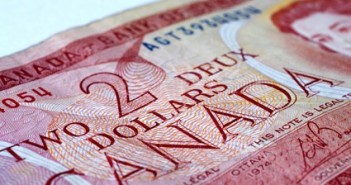The relatively new Canadian government led by Justin Trudeau presented a new budget with a significant deficit. What does this mean for CAD? This could have a positive impact:
Here is their view, courtesy of eFXnews:
The federal government released its 2016 budget today. The fiscal deficit for FY2016-17 is expected at C$29.4bn (1.5% of GDP), roughly in line with expectations, and at C$29.0bn (1.5% of GDP) for FY2017-18. Overall, while the size of the deficit is roughly in line with expectations, the composition is less positive than what we expected.
As such, the balance between increases in investment in infrastructure and tax credits is tilted toward the latter, meaning that the stimulatory impact of the new measures could be lower. The Department of Finance estimate that the new measures announced in the budget will boost growth by 0.5pp in FY2016-17 and by 1.0pp in FY2017-18. However, while low to middle income families have a high propensity to consume their income, we believe that in the current context where households in Canada are extremely indebted, there is a risk that most of the new Child Care benefit will be saved rather than consumed and, hence, the impact on the economy could be less.
Despite this, we continue to believe that the new measures and their impact on growth will be big enough to allow the Bank of Canada to keep rates unchanged, especially given the comments from Gov. Poloz at the press conference in January. Nevertheless, we should have a confirmation in April, as the BoC is expected to release its estimates of the impact of the budget on its forecast.
With the size of the deficit roughly in line with expectations and the likelihood of a credit downgrade extremely low, the budget had very little impact on either the bond or currencies markets.
For lots more FX trades from major banks, sign up to eFXplus
By signing up to eFXplus via the link above, you are directly supporting Forex Crunch.
